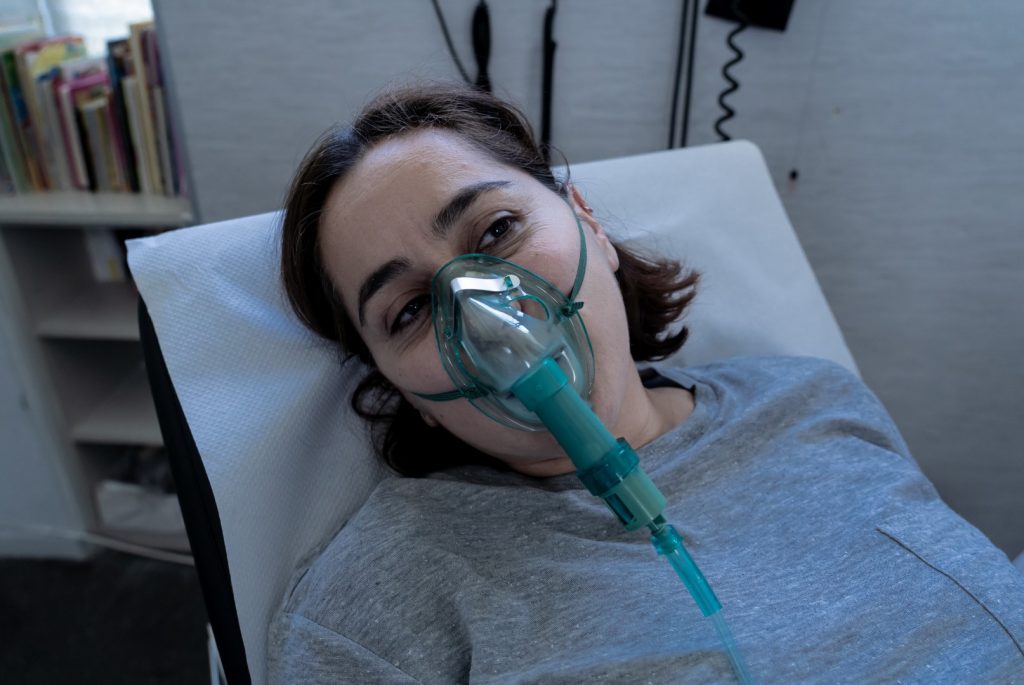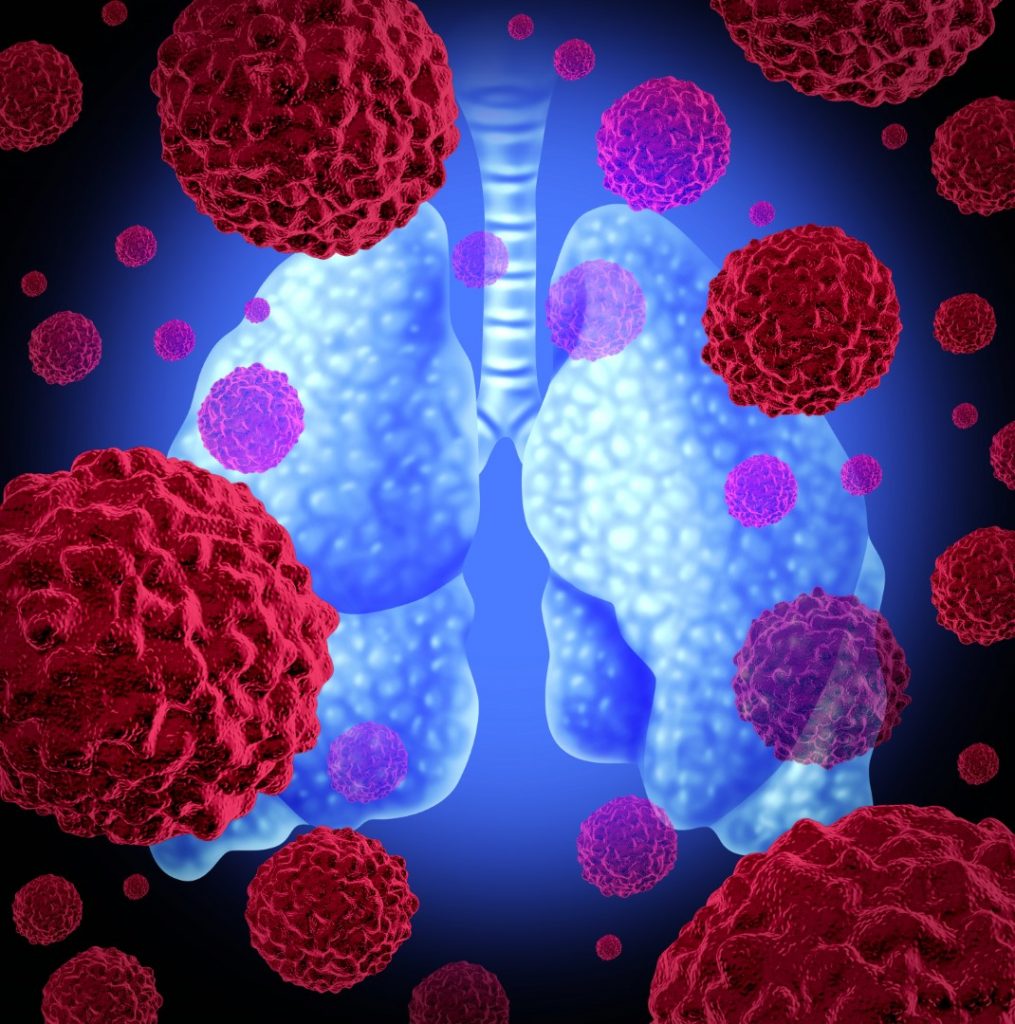IES offers a plethora of internationally reputed health care experts. Equipped with state-of-the-art personalized treatment modalities specifically tailored to each individual undergoing treatment, IES obtains remarkable outcomes across all phases of the lung cancer patient journey.
Great strides have recently been made in increasing lung cancer patients` life expectancy and considerably enhancing their overall well-being. IES is renowned for its ultramodern state of the art healthcare equipment. IES constantly earmarks funding for healthcare technology and apparatus with the aim of adhering to the highest standards of professional excellence in healthcare.
What is Pulmonary Cancer?
Pulmonary carcinoma, the second most prevalent cancer, is prominent in older males and females (starting at age 65).
Pulmonary cancer involves abnormal cell multiplication within the lung/s that impacts and limits normal pulmonary functioning, thereby obstructing transport of oxygen to body tissues in the blood. Individuals with other types of cancer (in other parts of the body) are at risk of developing lung cancer due to metastasis (the spread of cancer), also termed secondary lung cancer.
Primary pulmonary cancer may develop in any part of the lung, but it frequently occurs within the epithelial cells lining the bronchi and bronchioles, and this is why lung cancer is also called bronchogenic carcinoma.
The two main categories of lung cancer are as follows:
Small cell lung cancers (SCLC)
Non-small cell lung cancers (NSCLC) – most prevalent type of lung cancer featuring incidence of subtypes
Other types of lung cancer exist, such as carcinoid tumors, which call for surgical therapy.
Smoking is the main risk factor for lung cancer, (extended) exposure to radon and additional carcinogenic (cancer-causing) chemicals and minerals such as arsenic. Asbestos fibers are the primary cause of lung cancer and mesothelioma. Mesothelioma is a cancer of the pleura (lining of the lungs); however, this cancer type is not considered a pulmonary cancer as it develops outside of the lungs.
Pulmonary Cancer Symptoms
Signs or symptoms in the majority of pulmonary cancers are typically not noted in the early phases. Normally, symptoms present themselves in more advanced stages of lung cancer; however, some individuals may experience symptoms. These include:
- Persistent cough or breathing difficulty
- Unexplained weight loss or fatigue
- Chest pain when breathing, laughing or coughing
- Coughing up blood or rust-color phlegm
- Recurrent spells of bronchitis or pneumonia
Advanced stage symptoms (signs of metastasis) include:
- Bone tenderness
- Numbness or light-headedness
- Neck and facial swelling
- Jaundice (yellow discoloration of the skin)
Some of the afore-mentioned symptoms may relate to other conditions, but it is imperative to consult with a specialist, as early diagnosis of lung cancer is essential for achieving a favorable prognosis.
Pulmonary Cancer Diagnosis.

Molecular Diagnosis
As a rule, in instances of suspected pulmonary cancer, tissue diagnosis is compulsory. A skilled pathologist, using sophisticated procedures and special laboratory stains, assesses the acquired tissue. Depending on the tumor type, additional tests are conducted to detect genetic mutations that may potentially impact treatment choices, including feasible biological treatments. This is requisite, as to 30% of pulmonary cancer patients harbor diverse mutations. Presently, the most frequent mutations occur in the following genes: EGFR, ALK, HER2, CMET, BRAF, RET, ROS1, and KRAS.
Contingent upon the preliminary outcomes, additional analysis of tumors for additional mutations using third generation sequencing technology may potentially be proposed.
Precise diagnosis is imperative for customizing the most effective therapy for each individual patient. The following diagnostic procedures apply in relation to the type and phase of pulmonary cancer:
Analysis of all preceding medical records, lab outcomes, pathology and images
Consultation with a senior lung cancer oncologist Additional mandatory tests and imaging tests, as recommended by the medical professional Lab tests, including biomarkers If indicated – massively parallel sequencing of tumor cells Low dose chest CT and/or PET-CT image With the diagnosis of Stage II lung cancer or late-stage lung cancer – a cranial CT scan Additional tissue sampling (by conducting a bronchoscopy, performing CT-guided biopsy or another imaging procedure), as required by the medical professional.
Pulmonary Cancer Treatment
Each case and tumor is unique. Professionals at IES meticulously attend to each case separately and constantly monitor any developments in the treatment of pulmonary cancer. Treatments vary for different types of pulmonary cancer, depending on the phase of the disease upon diagnosis.
Treatment involving biological therapy for pulmonary cancer is extremely promising and groundbreaking. While therapies are aimed at specifically targeting the tumor, targeted therapy is used on its own or in combination with other forms of therapy.

If the cancer is detected at an early stage (no symptoms of metastasis are present), then surgery followed by surveillance may be the choice of therapy. It is imperative that two specialists be involved in this process – an experienced surgeon and a physician who treats lung cancer.
In advanced stage cases, chemotherapy and/or radiotherapy may be necessary, subsequent to the meticulous planning of a specialist. The final treatment plan encompasses advanced genetic and molecular analysis of the tumor, aimed at determining sensitivity to anti cancerous drugs (chemical or biological).
In the event that brain metastases are detected, contingent upon their size and location, therapeutic radiation with stereotactic radio-surgery (SRS) or a preventive brain irradiation – whole brain radiation therapy (WBRT) may be administered.
IES: Leading Pulmonary Cancer Professionals
Leading the way in patient recovery, IES proudly boasts the excellent expertise of reputed lung cancer specialists and patients can rest assured that they are receiving the optimum chances of a cure for lung cancer.
IES’s Professor, a top oncologist in lung cancer treatment and pulmonologist. Prof. chairs the International Association for the Study of Lung Cancer (IASLC) and is committed to guaranteeing that state of the art optimal treatment is fashioned and customized to meet patients` specific needs.
Individualized medicine constitutes a revolution in the comprehension of the molecular mechanisms underlying cancer development and you can benefit from this first-class approach at IES. IES professionals make every effort to achieve improved patient outcomes. Early detection of pulmonary cancer is crucial for a positive (and significantly improved) prognosis than late diagnosis; it is strongly advised to consult a healthcare professional should you have any disquieting symptoms.


